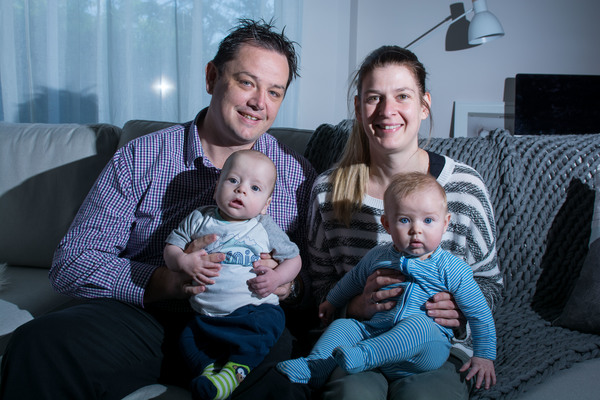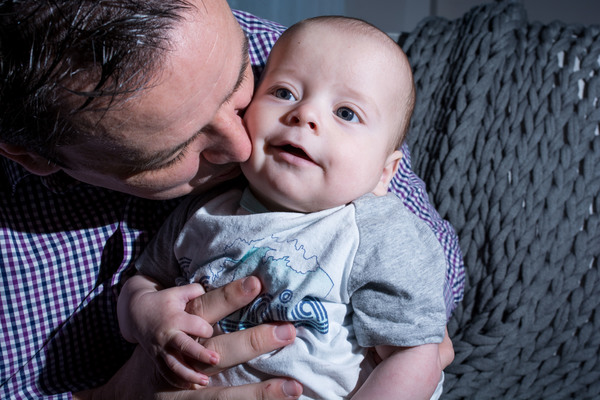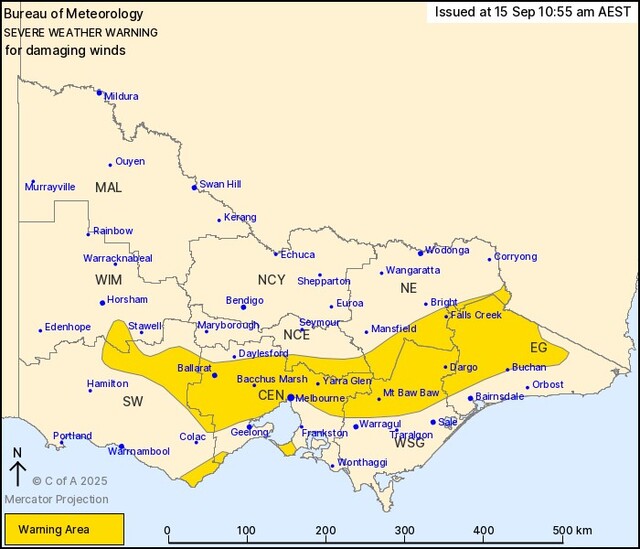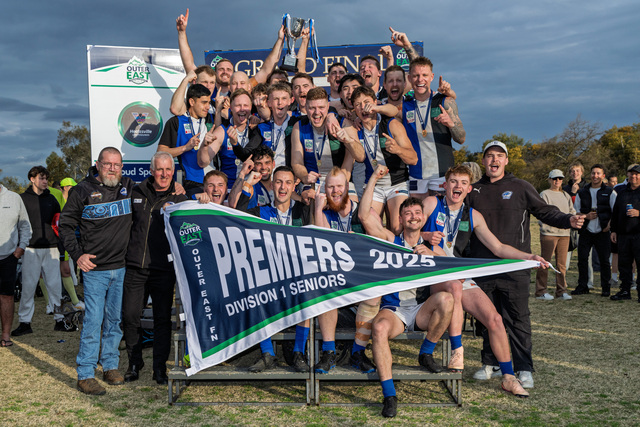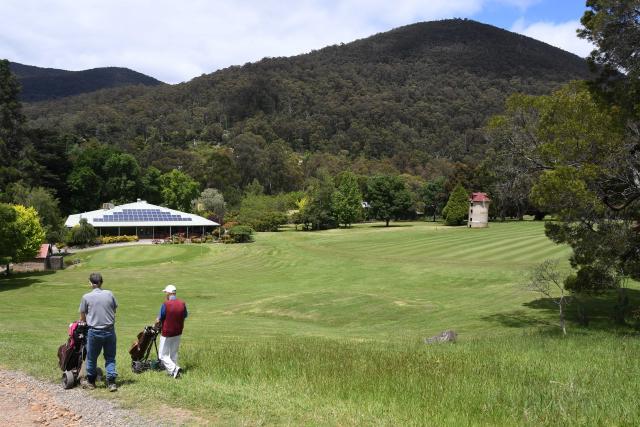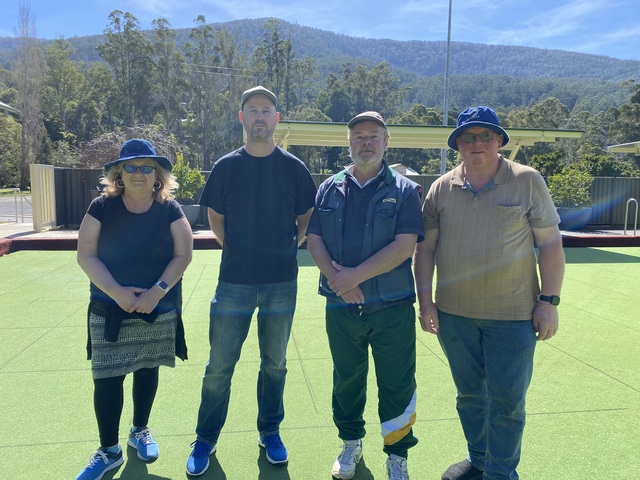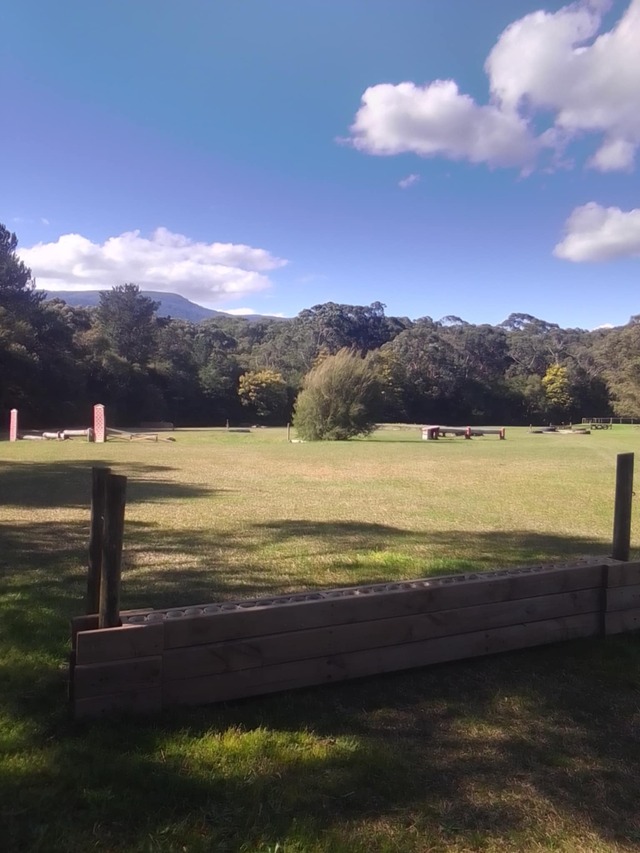By Jesse Graham
PARENTS of a six-month-old baby diagnosed with cancer have set up a Facebook page to document their son’s journey and recovery, prompting an outpouring of support from the community.
Wesburn parents Dale Haggar and Sarah Spencer set up the page ‘Two hearts, one battle … neuroblastoma” after their son, Max, was diagnosed with stage 4S Neuroblastoma in September.
Neuroblastoma is a rare cancer that affects infants and young children, which generally grows in the adrenal gland, above the kidney.
Ms Spencer said that Max’s cancer started in the adrenal gland, and had enlarged his liver – next to his twin, Charli, Max’s abdomen is larger from the tumour, but the six-month-old seemed happy and curious when this reporter visited, even though he had just woken up.
Mr Haggar said the Facebook page was set up to help friends and family keep up with Max’s treatments and condition, and to help raise awareness of the cancer.
The page amassed more than 600 likes in the space of a month, and the couple said there had been an “overwhelming” response, with a flood of messages offering support, food drop-offs and kind words.
“It’s just little updates on the way he is,” Mr Haggar said.
“We go every week to hospital, so we don’t want to, every week, put up a post to say he’s back in hospital – it’s more for the bigger posts to keep them updated.
“It’s been a bit overwhelming, hasn’t it – the amount of messages, the offers of support.”
Mr Haggar said babies had a one in 100,000 chance of developing neuroblastoma, with 40 children diagnosed in Australia in the last year.
The problem with diagnosing the disease, he said, was that it could often go unnoticed until the tumour had grown substantially.
“So far to confirm the diagnosis, Max has had loads of blood tests, urine tests, an ultrasound, MRI, x-ray, bone scan, bone marrow test, a biopsy (all in one week and at the age of four months), with three times having to be under a local,” a post on the page read.
Ms Spencer said Max’s chemotherapy had started with a low dosage, to try and reduce the size of the tumour, and that dosages might be increased as treatment went on.
“They’re starting off with low dosage, to hopefully trigger it to solve itself,” she said.
“It’s sort of just a watch and wait.”
Neuroblastoma tumours can range from benign tumours that can disappear of their own accord, or aggressive malignant tumours, which pose a survival rate of 40 per cent.
The couple said that Max, who is six months old, had been dealing well with the disease and his treatment, documenting some of their weekly hospital visits on the page.
Though they said there were difficulties, such as the financial struggle of going to hospital in Clayton each week, they had support from other families in similar situations, who got in contact via the Facebook page.
“It’s been definitely overwhelming,” Mr Haggar said.
“I guess what it does bring out is how many people are affected by cancer – it may not be children’s cancer, or something like that, but everyone’s got a story.
Anyone wanting to keep track of Max’s journey through treatment, or to offer support to the family, can visit www.facebook.com/maxandcharli.


